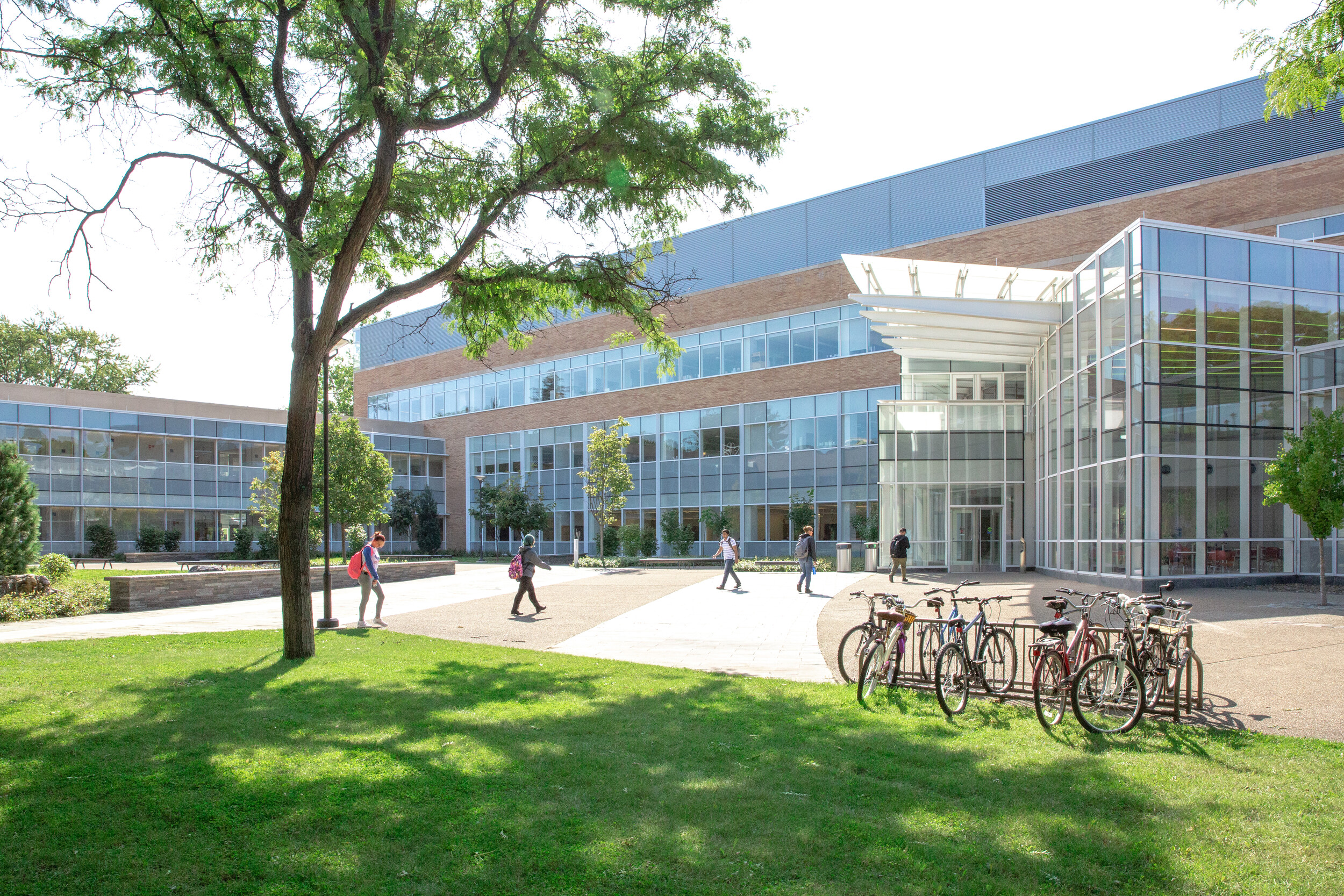



Choosing the right college is a personal decision and one of the most significant milestones in a student's life. And with roughly 4,000 degree-granting institutions in the U.S. alone, it can be hard to know where to begin. What academic and personal factors are the most important to consider? With so many similar websites and brochures, what information do you really need to make an informed decision?
Every student has different interests and needs. This is a difficult decision and every prospective student should make their choice with confidence. Keep in mind, there is no perfect college or university for everyone. Look at a variety of schools, stay critical, and most of all, trust yourself!
.jpg)
Identifying the right college starts with understanding your personal needs and career aspirations. If you're trying to choose between a few career options, talk to a guidance counselor at your school, parents, friends, teachers, or take an online assessment.
Once you've identified your areas of interest, it's time to take the first step to narrow down the search. Will you stay in-state, closer to home, or are you looking for an adventure in someplace new? Do you want a big university experience, or to join a community where you'll be a name instead of a number? Choosing a school that fits your preferences helps ensure your success at college. Here are three primary factors to keep in mind:
EXTRA CREDIT: Assess each college's dedication to your field by examining both your specific program and related areas. Remember, your studies will likely include courses in associated subjects. Ensure the college strongly supports disciplines connected to your primary interest.
.jpg) While large universities typically provide abundant academic and extracurricular opportunities, the potential drawbacks of crowded classes and expansive campuses may overwhelm some students, potentially diminishing the benefits of these extensive offerings. One way to evaluate this is to review each school's student-to-professor ratio, and provide average class sizes. At SUNY Fredonia, we have a 12:1 ratio and an average class size of 22. You will find schools with 18:1, 30:1, and even 40:1 ratios, which can make it harder for individuals to get personalized mentoring, career advice, and others support. When thinking about the kind of academic experience you want, consider the following:
While large universities typically provide abundant academic and extracurricular opportunities, the potential drawbacks of crowded classes and expansive campuses may overwhelm some students, potentially diminishing the benefits of these extensive offerings. One way to evaluate this is to review each school's student-to-professor ratio, and provide average class sizes. At SUNY Fredonia, we have a 12:1 ratio and an average class size of 22. You will find schools with 18:1, 30:1, and even 40:1 ratios, which can make it harder for individuals to get personalized mentoring, career advice, and others support. When thinking about the kind of academic experience you want, consider the following:
EXTRA CREDIT: Walk through town. Life in college doesn't stop at the edge of campus, so check out local restaurants, shopping, parks, or part-time job opportunities.

Now that you know what kind of college or university experience you want, it's time to get more specific about the schools that match your preferences. Much of the process to review your top schools can be done through their website and social media accounts. However, nothing takes the place of actually visiting the campus for yourself. Where do students live on campus? How's the food? Choosing a college is a significant decision, so take your time, gather all necessary information, and trust your instincts. When you have some schools on your list, take a look at the following unique information for each one:
1. Researching College Rankings and Reputation: Begin by researching college rankings and reputation through reputable sources like college ranking websites or publications. Pay attention to factors such as academic programs, faculty qualifications, student satisfaction, and graduation rates. Prioritize what matters most to you, whether it's a strong academic reputation or a specific program or department.
2. Talk to Current Students and Alumni: Engaging with current students and alumni can provide valuable insights into the college experience. Reach out to college admissions offices to connect with current students or alumni willing to share their experiences. Ask about their academic journey, extracurricular activities, and overall satisfaction with the college. This firsthand information can help you understand the college's strengths and weaknesses and make an informed decision.
3. Take a Social Media Deep Dive: Dig into your prospective colleges' social channels and take a peek at the campus experience. Do you see smiling, happy faces? Does the campus look like someplace you can thrive year round? Are the students involved in research programs, extracurricular activities, clubs and organizations? What's the weather like? Some of your biggest questions can be answered simply by looking at their Instagram accounts.
4. Visit the Campus: Campus visits are essential to the college selection process. Nothing replaces the experience of walking across campus, seeing the space, taking it all in. Schedule tours to experience firsthand what each college offers and take time to observe the campus facilities, dormitories, classrooms, and recreational areas. Note the campus culture, friendliness of staff and students, and the overall atmosphere. This will help you determine if you can envision yourself thriving and being happy at the college.
EXTRA CREDIT: Meet with faculty in your anticipated program when you come to campus. Do you like their approach to teaching? Is their research interesting? Are they someone you would want to learn from?
Attend Open House Schedule a Visit
Making the right choice for your college experience is both a daunting task AND an empowering opportunity. Considering the factors above, you can navigate the process with clarity and confidence. Here are three key aspects to consider:
Keep your goals in sight; this is your moment to choose the path that truly resonates with who you are and who you want to be. If you have any questions don't hesitate to reach out to the SUNY Fredonia Admissions Office at 716-673-6251.